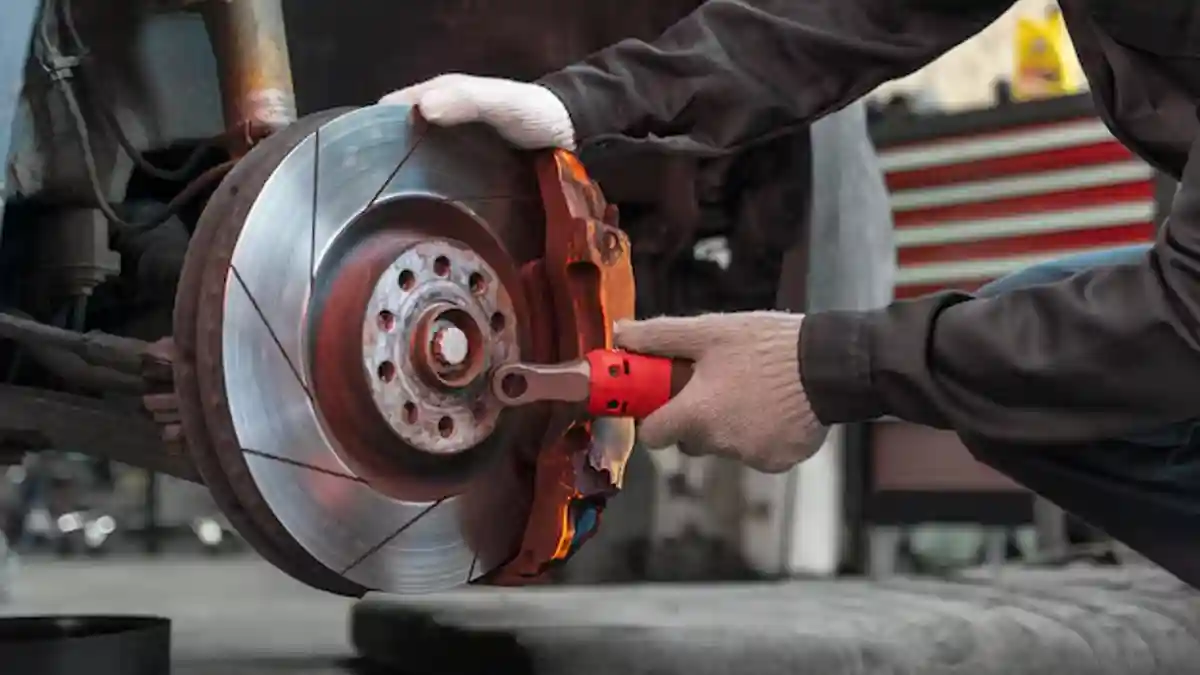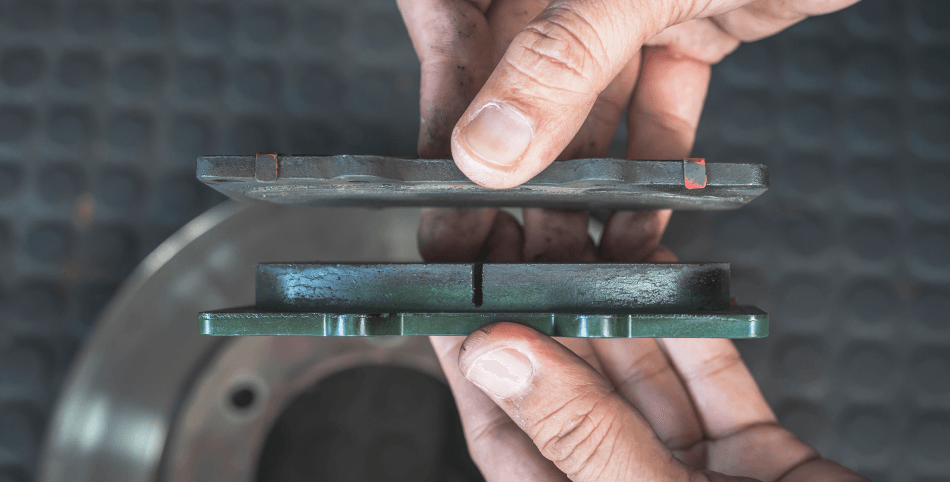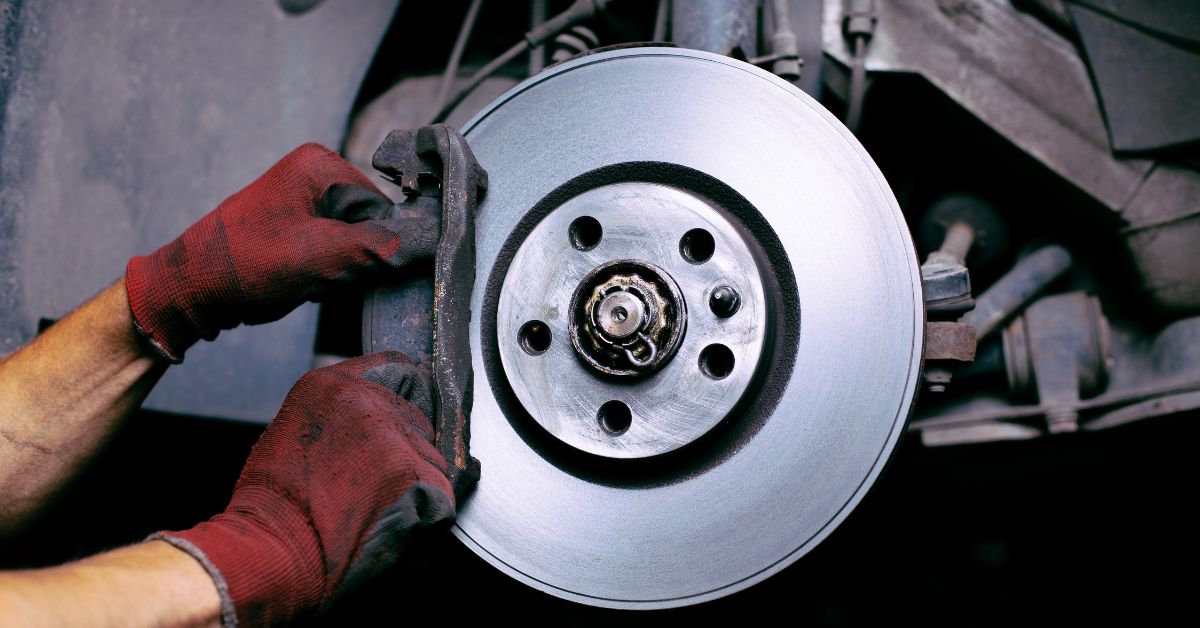Brake pads are essential components of your vehicle that wear out over time and need regular maintenance or replacement. Recognizing the signs that your brake pads are wearing down is crucial for your safety and the performance of your car. If you notice any of these 10 signs, it may be time to consult with a professional auto shop to schedule a brake pad replacement before further damage occurs.
1. High-Pitched Squealing Noise
One of the most common signs that your brake pads need replacing is a squeaking noise when you apply the brakes. This sound is often caused by wear indicators built into the brake pads, signaling that they are at the end of their lifespan. If you hear this noise, it’s essential to take your vehicle to an auto shop for a thorough inspection and replacement of your brake pads. Ignoring the squeaking may lead to further damage to your braking system.
2. Loud Grinding Noises
If you hear a grinding noise when braking, it’s a clear indication that your brake pads are severely worn down. This sound occurs when the metal parts of the brake pad and rotor come into direct contact, which can damage both components. If you experience grinding while braking, it’s critical to get your brake pads replaced as soon as possible to prevent further damage and ensure your vehicle’s braking efficiency.

3. Shaking or Vibration When Stopping
Another sign of worn-out brake pads is a vibrating or shaking sensation when you apply the brakes. This issue typically occurs when the brake pads have become unevenly worn or the brake rotors are damaged. The vibration is a result of inconsistent contact between the brake pad and rotor. If you feel this shaking sensation, it’s time to have your vehicle inspected and get the necessary repairs or replacements to restore safe braking performance.
4. Decreased Stopping Power
If your vehicle is taking longer to stop or you feel that the brakes are not as responsive as they used to be, it’s a sign that your brake pads are losing their effectiveness. Reduced braking efficiency can be caused by worn brake pads or other components in the braking system that need attention. It’s essential to address this issue promptly to ensure you can stop your vehicle safely and avoid any accidents or further damage to your braking system.
5. Unpleasant Burning Smell
A burning or hot smell coming from your wheels is another clue that your brake pads may need replacement. When brake pads are worn out, they can overheat, causing a distinctive odor. This smell can also indicate that other brake components, like calipers or wheel cylinders, are malfunctioning. If you notice any unusual scents, it’s important to have your brake system checked to avoid further issues and potential safety risks.
6. Illuminated Check Engine Light
The check engine light on your dashboard may come on when there’s an issue with your vehicle’s braking system. Low brake fluid levels, worn brake pads, or uneven brake pad wear can trigger this light. If the check engine light illuminates, it’s best to have your vehicle inspected by a professional. A diagnostic test will help pinpoint the problem and determine if brake pad replacement is necessary for your vehicle’s safety.
7. Brake Pads Becoming Thin
Brake pads typically start at about half an inch in thickness. As they wear down, the pads become thinner. If your brake pads have worn down to a quarter-inch thickness or less, it’s time to consider replacing them. Thin brake pads significantly reduce braking performance and can cause damage to other brake components if left unchecked. Having your brake pads measured regularly during maintenance can help you avoid driving with inadequate braking power.

8. Impact of Manufacturer’s Warranty
If your vehicle is still under warranty, regular maintenance is essential to keep the warranty valid. Brake pad replacement is typically a part of this maintenance routine, and failing to replace worn brake pads could void your warranty. Always consult your warranty provider to understand the requirements for brake maintenance and ensure that you follow the necessary steps to protect your vehicle’s warranty while keeping your brakes in top condition.
9. Brake Wear in Older Vehicles
As vehicles age, their brake pads experience more wear and tear, especially if they’ve been driven for 50,000 miles or more. If you have an older vehicle, particularly one with high mileage, it’s a good idea to schedule a brake inspection. Older vehicles may require more frequent brake pad replacements to maintain optimal performance and safety. Regular checks are crucial to keep your vehicle running smoothly and prevent costly repairs down the line.
10. Vulnerability of Specific Vehicle Models
Certain vehicle makes and models are more prone to brake issues than others. For example, some models like the Ford Fusion or Chevrolet Silverado are known to have brake problems. If you drive one of these vehicles or another model with a history of braking issues, you should pay extra attention to your brake pads and schedule more frequent checks. Consulting with a professional mechanic can help identify any potential risks associated with your vehicle’s braking system.
Recognizing the signs that your brake pads need replacement is vital for maintaining vehicle safety and performance. Regular inspections and timely replacements can prevent costly repairs and ensure your vehicle’s braking system functions properly. By staying proactive with brake maintenance, you can enjoy a smoother, safer driving experience. Whether you’re dealing with unusual noises, vibrations, or a check engine light, taking quick action can keep you on the road confidently.

